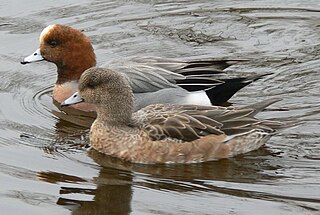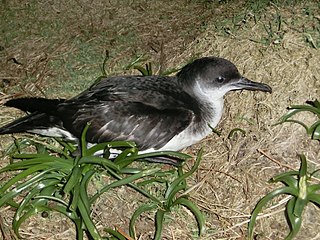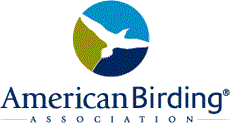
Rathlin Island is an island and civil parish off the coast of County Antrim in Northern Ireland. It is Northern Ireland's northernmost point.

The osprey or more specifically the western osprey — also called sea hawk, river hawk, and fish hawk — is a diurnal, fish-eating bird of prey with a cosmopolitan range. It is a large raptor, reaching more than 60 cm (24 in) in length and 180 cm (71 in) across the wings. It is brown on the upperparts and predominantly greyish on the head and underparts.

Birdwatching, or birding, is a form of wildlife observation in which the observation of birds is a recreational activity or citizen science. It can be done with the naked eye, through a visual enhancement device like binoculars and telescopes, by listening for bird sounds, or by watching public webcams.

The hen harrier is a bird of prey. The genus name Circus is derived from Ancient Greek kirkos, meaning 'circle', referring to a bird of prey named for its circling flight. The specific cyaneus is Latin, meaning "dark-blue".

The Eurasian wigeon, also known as widgeon is one of three species of wigeon in the dabbling duck genus Mareca. It is common and widespread within its range.

The glossy ibis is a wading bird in the ibis family Threskiornithidae. The scientific name derives from Ancient Greek plegados and Latin, falcis, both meaning "sickle" and referring to the distinctive shape of the bill.

The European golden plover, also known as the Eurasian golden plover or just the golden plover within Europe, is a largish plover. This species is similar to two other golden plovers: the American golden plover, Pluvialis dominica, and Pacific golden plover, Pluvialis fulva, which are both smaller, slimmer and relatively longer-legged than European golden plover, and both have grey rather than white axillary feathers.

The whooper swan, also as the common swan, pronounced hooper swan, is a large Northern Hemisphere swan. It is the Eurasian counterpart of the North American trumpeter swan, and the type species for the genus Cygnus. Francis Willughby and John Ray's Ornithology of 1676 referred to this swan as "the Elk, Hooper, or wild Swan". The scientific name is from cygnus, the Latin for "swan".

The Manx shearwater is a medium-sized shearwater in the seabird family Procellariidae. The scientific name of this species records a name shift: Manx shearwaters were called Manks puffins in the 17th century. Puffin is an Anglo-Norman word for the cured carcasses of nestling shearwaters. The Atlantic puffin acquired the name much later, possibly because of its similar nesting habits.

The black-tailed godwit is a large, long-legged, long-billed shorebird first described by Carl Linnaeus in 1758. It is a member of the godwit genus, Limosa. There are three subspecies, all with orange head, neck and chest in breeding plumage and dull grey-brown winter coloration, and distinctive black and white wingbar at all times.

The red-necked phalarope is a small wader. This phalarope breeds in the Arctic regions of North America and Eurasia. It is migratory, and, unusually for a wader, winters at sea on tropical oceans.

The barred warbler is a typical warbler which breeds across temperate regions of central and eastern Europe and western and central Asia. This passerine bird is strongly migratory, and winters in tropical eastern Africa.

The British Trust for Ornithology (BTO) is an organisation founded in 1932 for the study of birds in the British Isles.

The American Birding Association (ABA) is a non-profit organization, founded in 1969, dedicated to recreational birding in Canada and the United States. It has been called "the standard-bearer for serious birding in North America." Originally concentrated on finding, listing, and identifying rare birds, the ABA now seeks to serve all birders with a wide range of services and publications.

Charles "Charlie" Bird is an Irish journalist and broadcaster. He was Chief News Correspondent with RTÉ News and Current Affairs until January 2009. He took up the role of Washington Correspondent, but prematurely returned to his earlier post in Ireland in June 2010. He retired from RTÉ in August 2012.
Richard Lewington is a British wildlife artist renowned for his exquisite eye for detail, especially with lepidoptera.

The fauna of Ireland comprises all the animal species inhabiting the island of Ireland and its surrounding waters.

Great Britain is an island in the North Atlantic Ocean off the northwest coast of continental Europe. With an area of 209,331 km2 (80,823 sq mi), it is the largest of the British Isles, the largest European island, and the ninth-largest island in the world. In 2011, Great Britain had a population of about 61 million people, making it the world's third-most populous island after Java in Indonesia and Honshu in Japan. The island of Ireland is situated to the west of Great Britain, and together these islands, along with over 1,000 smaller surrounding islands, form the British Isles archipelago.

Symbols of Ireland are marks, images, or objects that represent Ireland. Because Ireland was not partitioned until 1922, many of the symbols of Ireland predate the division into Southern Ireland and Northern Ireland.


















